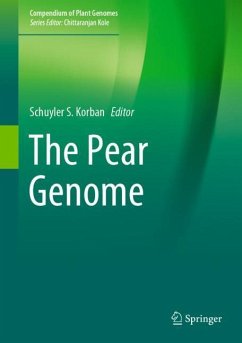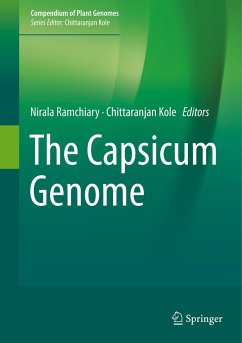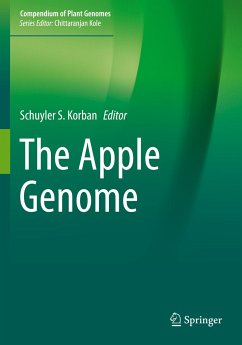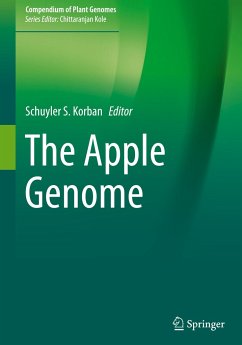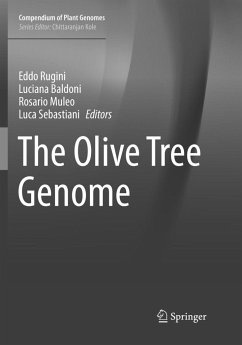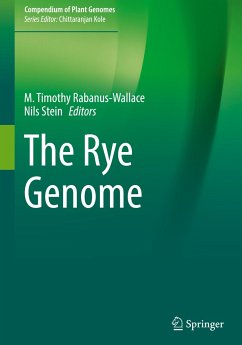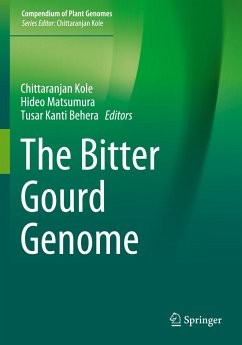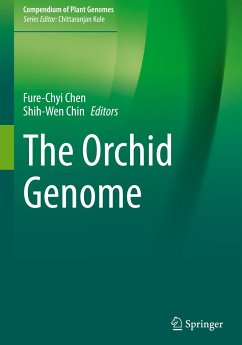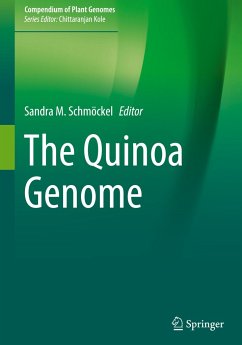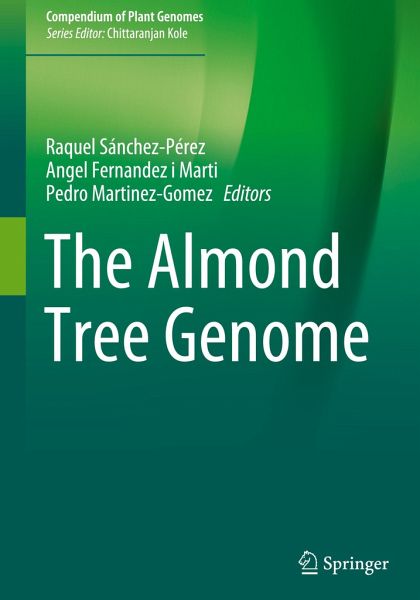
The Almond Tree Genome

PAYBACK Punkte
76 °P sammeln!
This book brings together the latest information on almond genomics and transcriptomics, with a particular focus on cutting-edge findings, tools, and strategies employed in genome sequencing and analysis with regard to the most important agronomic traits. Cultivated almond [(Prunus dulcis (Miller) D. A. Webb, syn. Prunus amygdalus Batsch., Amygdalus communis L., Amygdalus dulcis Mill.)] is a tree crop producing seeds of great economic interest, and adapted to hot and dry climates. Domesticated in Southeast Asia, its small diploid genome and phenotypic diversity make it an ideal model to comple...
This book brings together the latest information on almond genomics and transcriptomics, with a particular focus on cutting-edge findings, tools, and strategies employed in genome sequencing and analysis with regard to the most important agronomic traits.
Cultivated almond [(Prunus dulcis (Miller) D. A. Webb, syn. Prunus amygdalus Batsch., Amygdalus communis L., Amygdalus dulcis Mill.)] is a tree crop producing seeds of great economic interest, and adapted to hot and dry climates. Domesticated in Southeast Asia, its small diploid genome and phenotypic diversity make it an ideal model to complement genomics studies on peach, generally considered to be the reference Prunus species. Both represent consanguineous species that evolved in two distinct environments: warmer and more humid in the case of peach, and colder and xerophytic for almond. The advent of affordable whole-genome sequencing, in combination with existing Prunus functional genomics data, has now made it possible to leverage the novel diversity found in almond, providing an unmatched resource for the genetic improvement of this species.
Cultivated almond [(Prunus dulcis (Miller) D. A. Webb, syn. Prunus amygdalus Batsch., Amygdalus communis L., Amygdalus dulcis Mill.)] is a tree crop producing seeds of great economic interest, and adapted to hot and dry climates. Domesticated in Southeast Asia, its small diploid genome and phenotypic diversity make it an ideal model to complement genomics studies on peach, generally considered to be the reference Prunus species. Both represent consanguineous species that evolved in two distinct environments: warmer and more humid in the case of peach, and colder and xerophytic for almond. The advent of affordable whole-genome sequencing, in combination with existing Prunus functional genomics data, has now made it possible to leverage the novel diversity found in almond, providing an unmatched resource for the genetic improvement of this species.





